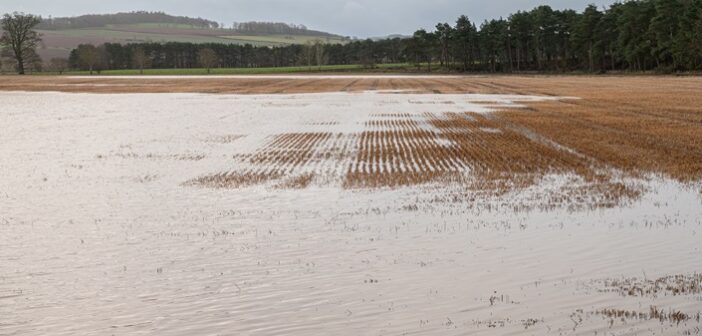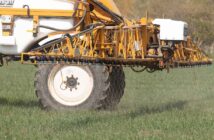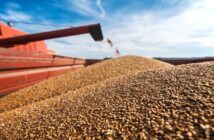With extreme winter rainfall set to become more frequent with climate change. it could overwhelm the ability of farmland to regulate pollution, putting water quality and aquatic ecosystems at growing risk.
Scientists at Rothamsted’s North Wyke Farm Platform in Devon, Britain’s most monitored farm, have found that even well-managed grazing and arable systems are struggling to withstand modern winter wet weather extremes, leading to dramatically increased sediment loss from fields into rivers.
Using over a decade of high-resolution (15-minute) environmental data collected at North Wyke, researchers assessed how rainfall during five recent winters—including three of the wettest on record—affected soil erosion and sediment loss; a key indicator of water quality regulation. They compared this against a baseline of “modern background” sediment loss rates based on pre-World War II levels identified using dated lake cores collected from across the UK.
The findings are stark. In pastures that had undergone routine ploughing and reseeding just before winter, sediment loss surged to as much as 2.4 times the expected modern background level. But in arable fields growing winter wheat and spring oats—losses were up to 21.7 times higher than the modern background rates.
These losses translate into significant environmental costs, with damage estimates ranging from £163 to £507 per hectare for permanent pasture and up to a staggering £2,812 per hectare for arable systems over the five winters studied.
“These results highlight the fragility of even our best-managed agricultural systems in the face of increasingly extreme winter wet weather,” said Professor Adie Collins, lead author of the study, adding that the findings raise serious questions about the long-term sustainability of current farming practices in a changing climate.
Elevated soil erosion not only depletes farm productivity but also chokes rivers and reservoirs with sediment, damaging habitats, worsening flooding, and increasing water treatment costs. As climate patterns shift, experts warn that a failure to adapt land management practices could see these impacts intensify and become more pervasive.
Professor Collins says these findings should serve as a wake-up call for policymakers, land managers, and the public alike. “We urgently need to rethink how we manage agricultural land in the UK if we want to protect the essential ecosystem services that farmland provides.”




